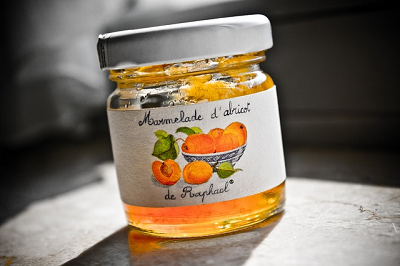Why Do Patients With Seminal Vesiculitis Have Jelly-like Sperm?
Seminal vesiculitis is a common male reproductive system disease, usually caused by bacterial infections. Men with seminal vesiculitis may find jelly-like clots in their semen. This phenomenon causes confusion and concern for many people.

So, why do patients with seminal vesiculitis have jelly-like sperm?
1. The pathological mechanism of seminal vesiculitis
Seminal vesiculitis is mainly caused by inflammatory reactions caused by bacterial infections, which can lead to abnormal secretion of seminal vesicle glands. Under normal circumstances, the fluid secreted by the seminal vesicles accounts for 60% -70% of the total semen, providing nutrition and protection for sperm.
In an inflammatory state, the liquid components secreted by the seminal vesicle glands change, causing the semen to become viscous and form jelly-like clots. This phenomenon is actually a joint result of abnormal glandular secretion caused by inflammation and bacterial infection.
2. Inflammation leads to increased secretion
Inflammation can increase the secretion of seminal vesicle glands, which contain a large amount of protein and other substances. In the acute phase of seminal vesiculitis, the fluid secreted by the glands becomes more viscous, forming jelly-like clots. As inflammation continues, these secretions will gradually accumulate in the semen, causing the semen to appear in an abnormal state as a whole.
3. The impact of bacterial infection
The bacteria that cause seminal vesiculitis usually produce some metabolic products, which further alter the physical and chemical properties of semen. The metabolic products of bacteria may bind with proteins in semen, forming clots.
In addition, bacterial infection can also cause local immune reactions in the seminal vesicle glands, allowing more white blood cells and inflammatory factors to enter the semen and exacerbating its viscosity and jelly-like appearance.
4. Lifestyle habits
The appearance of jelly-like sperm in patients with seminal vesiculitis is also related to their lifestyle habits and treatment measures. Long-term sitting, staying up late, drinking alcohol, and other unhealthy habits can exacerbate inflammation and affect semen quality. In addition, incorrect or incomplete treatment may also lead to long-term inflammation, resulting in the persistent appearance of jelly-like clots in semen.
For patients with seminal vesiculitis who have jelly-like sperm, timely medical attention and professional treatment are crucial:
1. Antibiotic treatment:
If the jelly-like sperm of patients with seminal vesiculitis is caused by bacterial infection, doctors may prescribe antibiotics to control the infection. Common antibiotics include penicillin and cephalosporins, etc. During the treatment period, antibiotics should be used correctly according to medical advice, and the entire treatment should be completed.
2. Anti-inflammatory drugs:
Anti-inflammatory drugs such as ibuprofen or acetaminophen can help alleviate inflammatory reactions, improve symptoms of seminal vesiculitis, and thus help restore the normal state of semen. But when using these drugs, one should follow the doctor's advice and be careful not to overdo them.
3. Traditional Chinese Medicine(TCM) conditioning:
Traditional Chinese medicine, such as Diuretic and Anti-inflammatory Pill, have the effects of clearing heat, detoxifying, antibacterial, and anti-inflammatory. It can alleviate inflammation symptoms and comprehensively regulate the patient's urinary and reproductive systems to achieve a comprehensive treatment effect, prevent recurrence, and alleviate the jelly-like symptoms of sperm.
4. Improving lifestyle:
Pay attention to maintaining good lifestyle habits and avoiding bad habits such as sitting still and staying up late, which can help promote recovery. In terms of diet, consuming foods rich in vitamins and minerals is also important to maintain balanced nutrition and improve immunity. Meanwhile, avoiding excessive and frequent sexual activity and reducing stimulation to the reproductive system can help alleviate symptoms and promote recovery.
You may also be interested in:
What Tests Are Needed for Seminal Vesiculitis?
Can You Take Warm Sitz Baths If You Have Seminal Vesiculitis?
White Mucus in the Urethral Opening and Jelly-Like Sperm: Must It Be Prostatitis?



